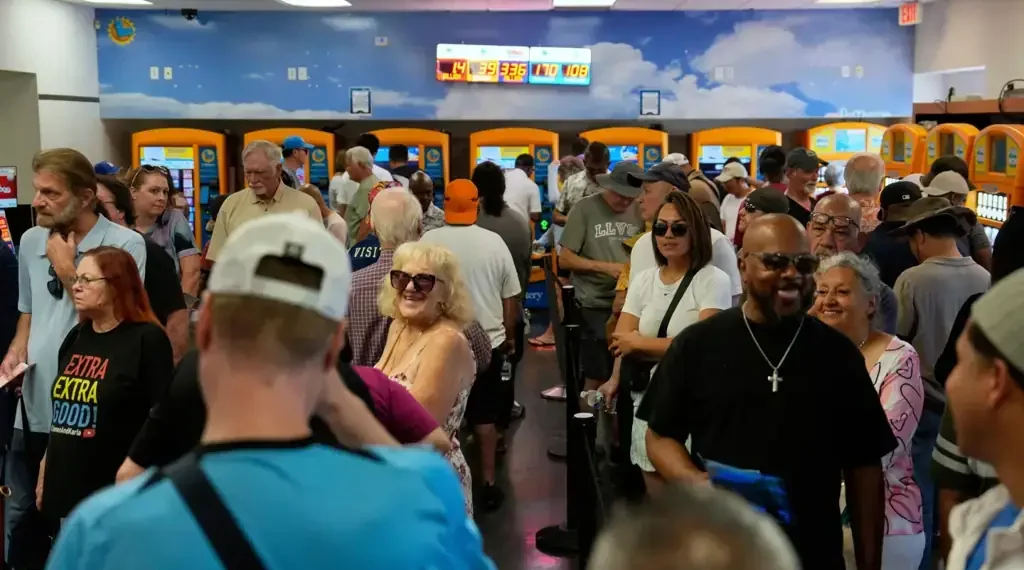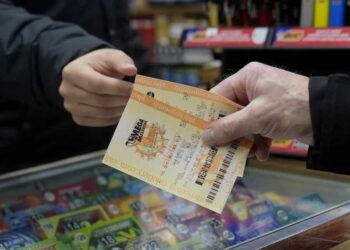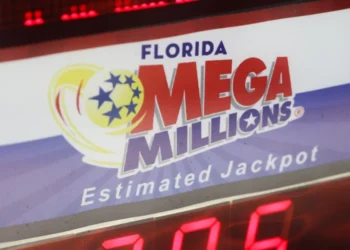$1.8 Billion Powerball Jackpot Draws Saturday as Winner Could Remain Anonymous, Reflecting Modern Lottery Privacy Laws and Security Measures
Published Time: 09-06-2025, 16:45 EDT
The $1.8 billion Powerball jackpot, the second-largest in history, will be drawn this Saturday. While a winner could emerge, their identity may remain private, reflecting modern laws that allow lottery winners to avoid public scrutiny and potential security risks.
Modern Rules Protect Lottery Winners
In contrast to past practices, today’s lottery winners often have the option to remain anonymous. Laws in several states have evolved to shield winners from unwanted attention and potential exploitation. Timothy Schultz, who won a $29 million lottery in Iowa in 1999, recalled the overwhelming media attention that followed his win.
“I wasn’t just Tim anymore, I was Tim the lottery winner,” Schultz said, reflecting on the intense public scrutiny he experienced.
Unlike Schultz, most winners now can claim large prizes without revealing their names publicly. About nine states allow complete anonymity for all lottery wins, while ten others permit anonymity for prizes above a specific threshold, such as $10,000 in Minnesota or $10 million in Virginia.
Lawyers Advise Strategic Claims
Kurt Panouses, a veteran lottery attorney, has represented clients claiming hundreds of millions of dollars. He recommends using intermediaries, trusts, and claiming prizes on high-profile days, like Election Day, to minimize exposure.
“It’s hard for people who don’t have the experience or life perspective to say no,” Panouses said, noting the numerous inquiries his clients receive from investors, scammers, and strangers seeking money.
Even in states where anonymity isn’t fully permitted, private trusts and legal mechanisms help winners maintain privacy. Attorney Mark K. Harder claimed the $842.4 million jackpot on behalf of a Michigan couple in 2024, emphasizing security and the family’s desire to remain publicly low-profile.
Historical Context of Public Lottery Disclosure
For centuries, publicly disclosing winners was essential to maintain trust in lotteries. State lotteries in America date back to the 1700s, funding government services without direct taxation. Jonathan D. Cohen, author of For a Dollar and a Dream: State Lotteries in Modern America, notes that early lotteries often resembled raffles, with winners announced at fairs in front of large crowds.
In the 1980s, small jackpot games featured live drawings with multiple participants on stage. Winners’ personal stories, such as those of housewives or orphans, became part of the draw’s appeal.
The rise of multi-state lotteries like Powerball and Mega Millions shifted the focus from individual stories to massive jackpots, which now generate headlines but reduce the personal element.
Notable Winners and Cautionary Tales
Some winners have faced significant challenges after claiming large prizes. Andrew “Jack” Whittaker Jr., who won $113.4 million in 2002, became an instant celebrity but later encountered legal issues and personal hardships. He later expressed regret over claiming the ticket and passed away in 2020.
Cohen stresses that such cases are exceptions. Most lottery winners enjoy improved financial and personal well-being after their wins. States often balance anonymity with transparency to prevent fraud, ensuring trust in the lottery system.
Recent Examples Highlight Privacy Trends
California requires disclosure, and Edwin Castro, who won a $2.04 billion jackpot in 2022, issued a written statement but declined interviews. By contrast, last year a Laotian immigrant and cancer survivor publicly celebrated a $1.3 billion Powerball win, demonstrating that some winners choose visibility to inspire others.
Schultz notes that public appearances can be positive if winners aim to motivate or encourage people.
“I think it could be really positive, if they want to inspire other people,” he said.
Why Anonymity Matters
Beyond avoiding media attention, privacy can protect winners from scams, theft, and personal intrusion. Modern legal structures, including trusts, intermediaries, and advisory teams, help winners manage newfound wealth while staying safe.
For those claiming massive jackpots like Saturday’s $1.8 billion prize, the first decision is often whether to embrace the spotlight or remain anonymous. Experts consistently recommend caution, professional guidance, and strategic planning to preserve personal security and peace of mind.
This article was rewritten by JournosNews.com based on verified reporting from trusted sources. The content has been independently reviewed, fact-checked, and edited for accuracy, neutrality, tone, and global readability in accordance with Google News and AdSense standards.
All opinions, quotes, or statements from contributors, experts, or sourced organizations do not necessarily reflect the views of JournosNews.com. JournosNews.com maintains full editorial independence from any external funders, sponsors, or organizations.
Stay informed with JournosNews.com — your trusted source for verified global reporting and in-depth analysis. Follow us on Google News, BlueSky, and X for real-time updates.







